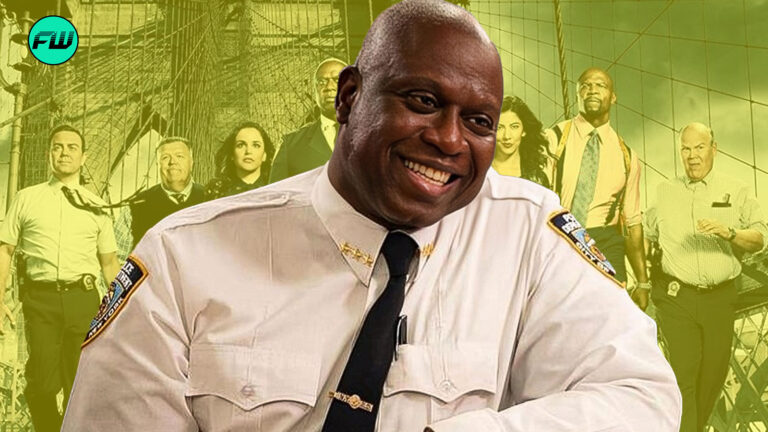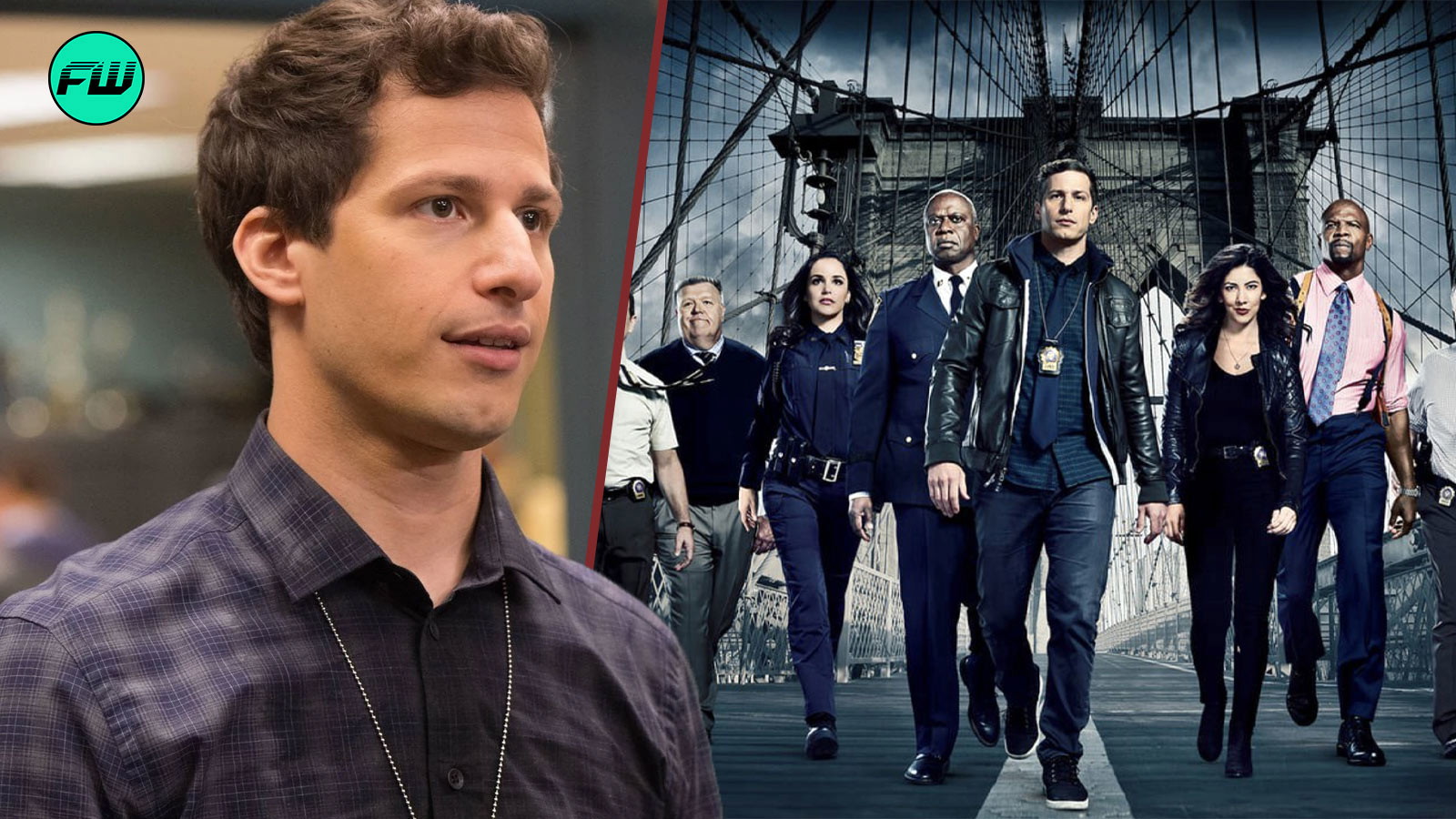
Brooklyn Nine-Nine has delivered plenty of brilliant episodes, but one that truly stands out is “He Said, She Said.” What makes it exceptional isn’t just the sharp writing or the humor, it’s how beautifully and thoughtfully it tackles the complexities of the #MeToo movement.
Directed by none other than Stephanie Beatriz (who plays the badass Rosa Diaz), this episode takes on one of the most serious topics while maintaining the show’s signature balance of comedy and heart. Instead of simplifying the issue, it presents multiple perspectives, showcasing the emotional weight and real-world consequences of workplace harassment and the difficult choices survivors face.
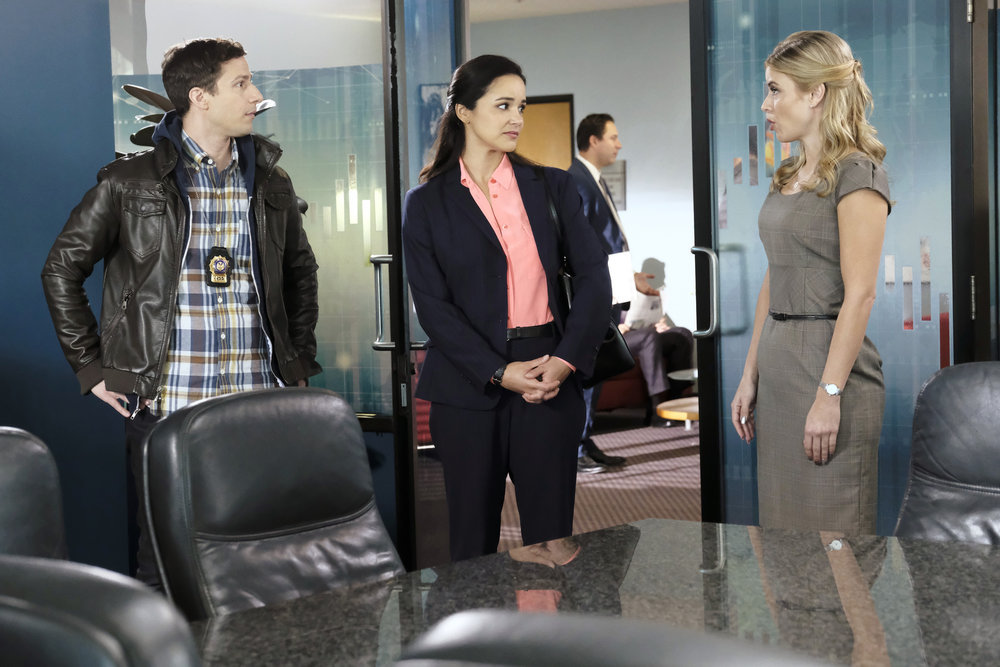
Unlike many sitcoms that shy away from such heavy themes or handle them superficially, Brooklyn Nine-Nine leaned in with such authenticity that is truly rare to see. Thus in turn, giving birth to one of the most realistic and impactful takes on the #MeToo movement in recent sitcom history.
Brooklyn Nine-Nine’s take on the #MeToo movement…
Brooklyn Nine-Nine has had some seriously great episodes, but for me, “He Said, She Said” stands out the most. It tackled the #MeToo movement in a way that felt raw, real, and honestly, a little too familiar.
For context, in this episode, Jake and Amy investigate a case where Seth Haggerty, a Wall Street banker, is accused of sexually assaulting Carrie Brennan. When Carrie comes in, she already assumes that the only way forward is to sign a non-disclosure agreement and accept $2.5 million to just let it go. But Amy encourages her to hold off and fight for justice.
Eventually, a coworker comes forward with a text from Seth that proves Carrie was telling the truth, and charges are filed. But the cost is high. No one at the firm wants to work with her anymore, and she ends up quitting. Her bravery then inspires another woman at the company to speak up about her own assault.
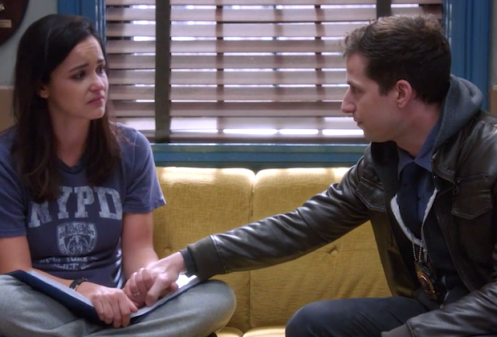
And then, the episode hits even harder when Amy shares her own story with Jake. Back when she was just a rookie at the Six-Four, her captain helped her advance in her career, giving her the best cases and setting her up for success. But when she was made detective, he took her out to dinner and tried to kiss her, saying he felt like he deserved something in return. Instead of reporting him, she quietly transferred to the Nine-Nine, afraid that speaking out would hurt her career. That moment crushed me because it felt so real, the fear, the self-doubt, the feeling that maybe it’s easier to just move on than fight a battle you might not win.
The fact that this episode was directed by Stephanie Beatriz (Rosa Diaz herself!) made it even more impactful. Brooklyn Nine-Nine handled this story with so much care, it wasn’t preachy, it wasn’t forced, it was just real. And that’s what made it one of the most powerful episodes in sitcom history.
Breaking down how “He Said, She Said” handled #MeToo so brilliantly!
Now, let’s talk about why this episode felt different than others. That is because it didn’t just tell us what’s right or wrong, it showed us the complexity of these situations, the impossible choices survivors face, and the fact that even people who support each other can still see things differently.
A great example of this is the conversation between Amy and Rosa. They’re both on the same side, they both believe in justice, but they still disagree on whether Amy did the right thing by convincing Carrie not to sign the NDA and take the hush money. And honestly, that discussion was so important.
Most of these cases never even go public, not because victims don’t want justice, but because the legal battle is expensive, exhausting, and often career-destroying. Fighting takes time, money, and resources that many just don’t have. And even if they do, there’s another harsh reality to consider…
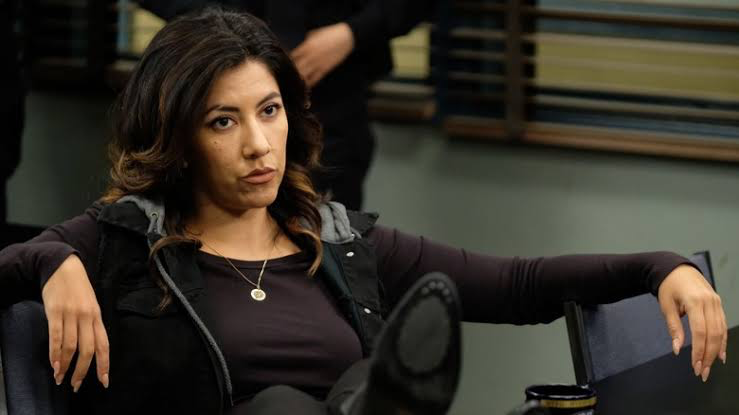
And that is why many victims don’t want this one horrible moment to overshadow everything they’ve worked for. They don’t want to be known as “the person who spoke out”, they want to be recognized for their skills and their achievements. Stephanie Beatriz understood this dilemma deeply and made sure it was reflected on screen. Speaking to TV Line about this episode, she said,
I think that’s the conversation that sometimes people don’t want to hear… I know so many people in my life that have dealt with something like this and have chosen not to come forward and talk about it, because they don’t want to be reduced to just that story. They don’t want that story to eclipse everything else that they’ve worked so hard for in their career.
She further added,
I think that’s the thing that gets lost when you’re having these very loud voices say, “Well, why didn’t she come forward sooner?” “Why didn’t she tell her story sooner?” “Why didn’t she report it to the police?” It’s very easy to look back and say it’s this person’s fault because they didn’t speak about it, and this is a very well-written scene in which two women — two women — talk about this and say, “Here are the pros and cons and this is my perspective on it.”
The fact that this discussion happened between two women made it even more powerful. Too often, these decisions are oversimplified as a clear right or wrong. But Brooklyn Nine-Nine did something different.
It didn’t pretend there’s one perfect solution. It just presented the reality that these situations are painful, unfair, and often don’t have a clear answer. Carrie didn’t get a happy ending, but at the same time, her bravery inspired another woman to come forward. The episode just let us sit with that reality instead of forcing a “justice always wins” narrative in every way. And that’s why it was pure genius!
Brooklyn Nine-Nine is available to stream on Peacock.
This post belongs to FandomWire and first appeared on FandomWire
